Derbyshire archive film expert shoots for the moon with Apollo 11
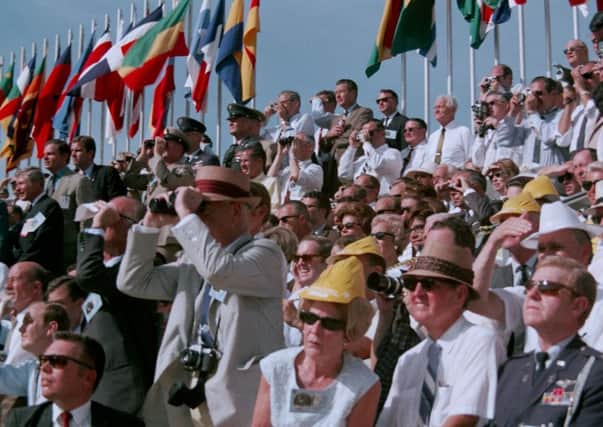

Stephen Slater, 32, from Foolow, unearthed some of the key sequences from Apollo 11, a stunning new documentary which retells the story of the first moon landing to mark the 50th anniversary next month.
The former Lady Manners School student presented the film to its first UK audiences earlier in June at Doc/Fest in Sheffield, where he now lives.
Advertisement
Hide AdAdvertisement
Hide AdHe said: “The aim is to make people feel like they were there. It immerses you in the perspectives of the astronauts, the team in Mission Control, and the millions of people watching the launch.
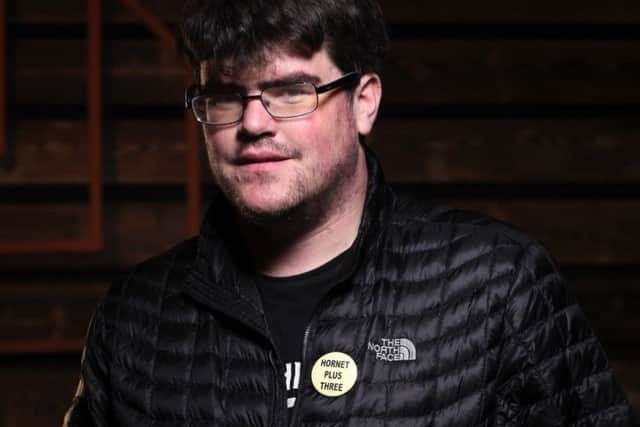

“When I first saw the material, I felt like it could have been filmed yesterday. The quality is that good.”
Much of the film has been crafted from a newly discovered trove of never-seen-before 70mm footage, and more than 11,000 hours of previously uncatalogued audio recordings covering every moment of the mission.
Stephen, director Todd Miller, and the team worked with NASA and the US National Archives to find the source material, but no-one knew what lay ahead when they began the voyage of discovery.
Advertisement
Hide AdStephen said: “Five months in production I got an email out of the blue from someone at the archive saying they had stumbled across 165 reels of unprocessed film.
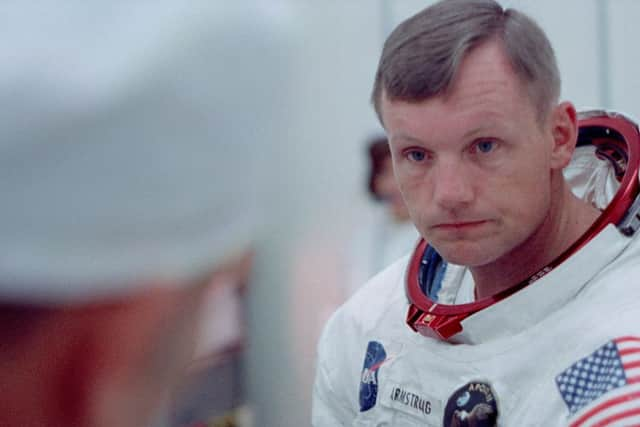

Advertisement
Hide Ad“They didn’t know what was on it, but they thought it might be related to Apollo 11. It was one of the best emails I’ve ever received.”
He added: “It turned out a lot of it had been shot for Moonwalk One, which was an avant-garde documentary made at the time.
“We knew about that film, the reels that went into that were badly degraded. It turned out there was all this footage they had never used. No one had seen it since 1969.
Advertisement
Hide Ad“The rest of the reels were film commissioned by NASA to document the mission for future generations. It probably started as a PR exercise. Most of it was just canned and sent to the archive. Now it’s a piece of history.”


It is not Stephen’s first venture into space. He got his big break as director of the BBC4 documentary Destination: Titan, which recounted the mission to land a probe on Saturn’s largest moon.
Advertisement
Hide AdHe followed that with work on The Last Man on the Moon, about Apollo 17 astronaut Gene Cernan, and then The Last Steps about the same mission — still the most recent time humans have travelled beyond low Earth orbit.
The latter brought him into contact with Todd, and allowed him to hone some of the techniques he has employed on their new film.
Advertisement
Hide AdHe said: “I’d ended up collecting a lot of material from the NASA archive and doing work on it like synchronising different audio and film sources from mission control.
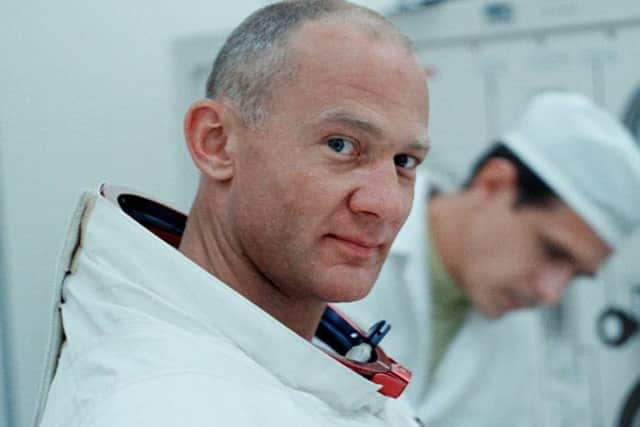

“I told Todd that I’d been doing bits of the Apollo 11 material in my own time, and that’s how this project got off the ground.”
It is a painstaking process to seamlessly match separate audio recordings and silent video footage, but Stephen’s passion for the work is undimmed.
Advertisement
Hide AdHe said: “Sometimes the only thing you have to go on is a shot of a clock on the wall and the log of what time someone in mission control spoke to the astronauts.
Advertisement
Hide Ad“It’s labour intensive, but I wouldn’t do it if it wasn’t exciting. It becomes absorbing, even if it feels like looking for a small piece of hay in a stack of needles. Having spent several years on that, it’s probably the part of the project which makes me most proud.
He added: “It’s not just a case of finding new material and putting the right sources together either. I spent a lot of time in dark rooms in the States trying to find the best versions of everything.
The process also required some NASA-worthy engineering feats to pull off. A unique film scanner was built in New York to digitise the unprocessed 70mm film in ultra-vivid 8K resolution.
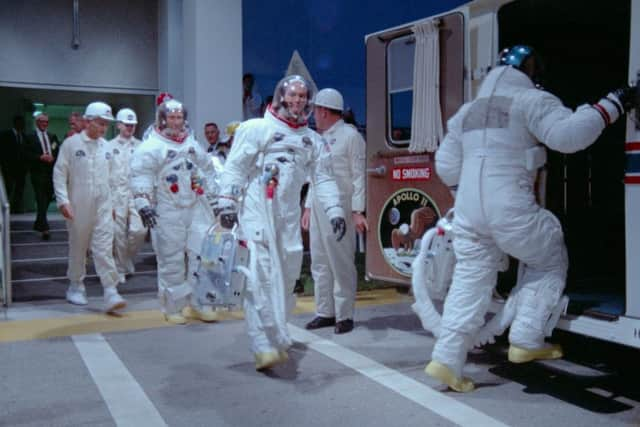

Stephen said: “If it’s going to be shown on an IMAX screen, it has to be the absolute highest quality.”
Advertisement
Hide AdAdvertisement
Hide Ad“In a lot of cases, I was able to find the camera originals, rather than copies —these reels were actually in the camera on the day it was filmed. Then it was a case of having each frame physically inspected.
“Given the importance of the day and all the different elements, they needed to shoot in the best format possible, and they did a great job.
“I was in an IMAX in Washington DC when we watched the footage back for the first time. Everyone’s jaw was on the floor. I knew there was potentially some good stuff in there but I wasn’t prepared for just how good it was.
“Seeing shots like the recovery of the astronauts when they touched down in the sea was quite emotional. It hit home just how cool this was.”
Advertisement
Hide AdStephen began his career in television sports production, and has racked up credits on acclaimed work such as George Best: All By Himself, and the BAFTA-winning documentary Hillsborough.
Advertisement
Hide AdHe traces his love of space travel back to watching the Hollywood production Apollo 13 in the cinema as a child, and he has lost none of his boyish wonder.
He said: “I don’t have a science background, so I’ve had to cram a lot of things from books and other documentaries.
“I was inspired by the bravery of the astronauts, the bravery of the ground controllers, and it’s just a very good story — probably the greatest story ever told.”
Advertisement
Hide AdHe added: “We’re slightly numb to it now, but people then were in awe of the machinery and everything they were seeing.
“There is more computing power in a pocket calculator than there was in those early spacecraft. That we did this and did it then, in the 1960s, was an incredible achievement. It’s an extraordinary period in history.”
Advertisement
Hide AdApollo 11 claimed an editing award when it premiered at the prestigious Sundance Film Festival in Utah earlier this year, and it would be no surprise if further awards were to follow.
Stephen said: “The premiere was the first time I had seen the finished film, and I was in awe of the direction and the editing.
Advertisement
Hide Ad“The music is beautiful too. There was an extraordinary team of people working on it.”
He added: “No-one has ever been able to work with this material before, so it was a huge privilege to have access to it. What we are doing is adding to the historical record, and adding value to the material there already.
“Now that this is all digitised, filmmakers will still be able to do things with decades from now. This will be the definitive record of the event. You had to master the archive to tell the story.”
Advertisement
Hide AdApollo 11 will screen at multiplexes and independent cinemas in Derby, Sheffield and Nottingham in the coming weeks. Screenings are also planned for the Ritz in Belper on July 15, and the Northern Light in Wirksworth on July 31.
For more details, see dogwoof.com/apollo11.